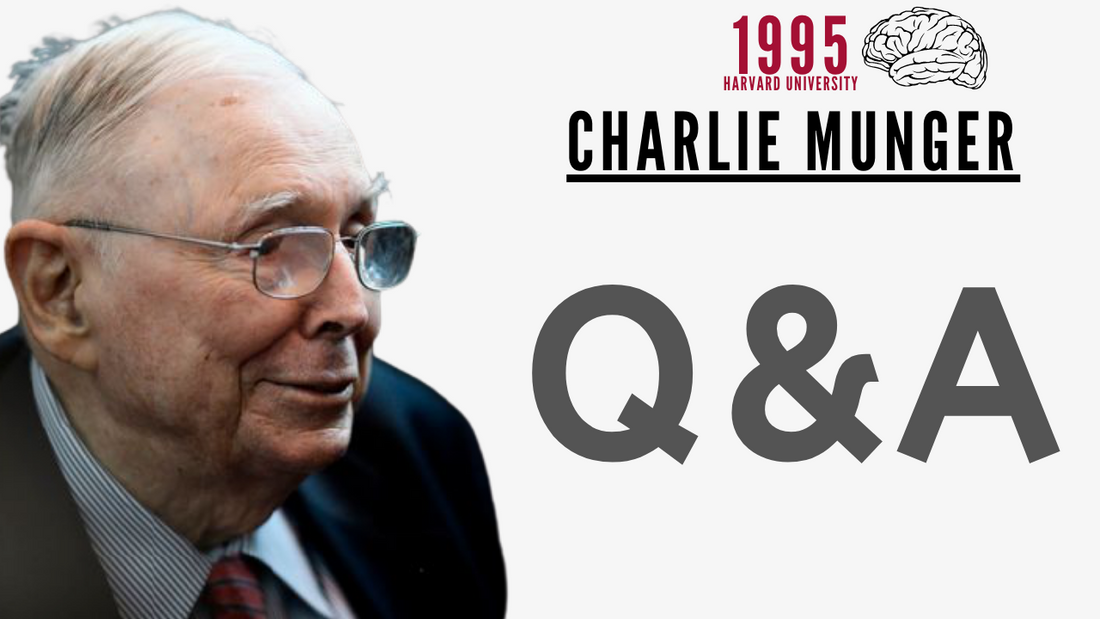
Charlie Munger: Q&A at Harvard 1995. | Harvard University 1995【C:C.M Ep.95】
[Transcript]
AUDIENCE MEMBER: Will we be able to get a copy of that list of 24 [standard causes of human misjudgment]?
CHARLIE MUNGER: Yes. I presumed there would be one curious man, (Laughter) and I have it and I’ll put it over there on the table, but don’t take more than one, because I didn’t anticipate such a big crowd. And if we run short, I’m sure the Center is up to making other copies.
AUDIENCE MEMBER: If I had listened to this talk I might have thought that Charles Munger was a psychology professor operating in a business school.
Every once in a while a micro-issue – you told us how you would’ve deal with one of these issues, for example with the unfortunate lady from See’s – but you didn’t tell us how these tendencies affected you and what’s probably the most important, or one of the most important elements of your success, which was deciding where to invest your money.
And I’m wondering if you might relate some of these principles to some of your past decisions that way.
CHARLIE MUNGER: Well, of course an investment decision in the common stock of a company frequently involves a whole lot of factors interacting. Usually, of course, there’s one big, simple model, and a lot of those models are microeconomic.
And I have a little list of – it wouldn’t be nearly 24, of those – but I don’t have time for that one. And I don’t have too much interest in teaching other people how to get rich. And that isn’t because I fear the competition or anything like that – Warren has always been very open about what he’s learned, and I share that ethos.
My personal behavior model is Lord Keynes: I wanted to get rich so I could be independent, and so I could do other things like give talks on the intersection of psychology and economics. I didn’t want to turn it into a total obsession.
AUDIENCE MEMBER: Out of those 24, could you tell us the one rule that’s most important?
CHARLIE MUNGER: I would say the one thing that causes the most trouble is when you combine a bunch of these together, you get this lollapalooza effect.
And again, if you read the psychology textbooks, they don’t discuss how these things combine, at least not very much. Do they multiply? Do they add? How does it work? You’d think it’d be just an automatic subject for research, but it doesn’t seem to turn the psychology establishment on. I think this is a man from Mars approach to psychology.
I just reached in and took what I thought I had to have. That is a different set of incentives from rising in an economic establishment where the rewards system, again, the reinforcement, comes from being a truffle hound.
That’s what Jacob Viner, the great economist called it: the truffle hound – an animal so bred and trained for one narrow purpose that he wasn’t much good at anything else, and that is the reward system in a lot of academic departments. It is not necessarily for the good. It may be fine if you want new drugs or something. You want people stunted in a lot of different directions so they can grow in one narrow direction, but I don’t think it’s good teaching psychology to the masses. In fact, I think it’s terrible.
(Source: https://youtu.be/07f8oasWqWg)
[YAPSS Takeaway]
